

Menu
Menu


Menu




Home » Cinema Curation Workshop
The 3-day cinema curation workshop offers a distinctive opportunity for students passionate about film history, culture, technology, and curation. Its primary aim is to furnish participants with foundational knowledge across various curation aspects, particularly focusing on Indian cinema. Through a meticulous application and screening process, chosen attendees will delve into the intricacies of curatorial practices. They will explore ideation, conceptualization, research methodologies, archival utilisation, and project realisation. Additionally, insights into the historical evolution of film curation, both domestically and internationally, across platforms such as film festivals, galleries, museums, and art centres will be provided. The workshop also delves into the potential of film curation as a viable professional and creative career path for film enthusiasts and scholars.
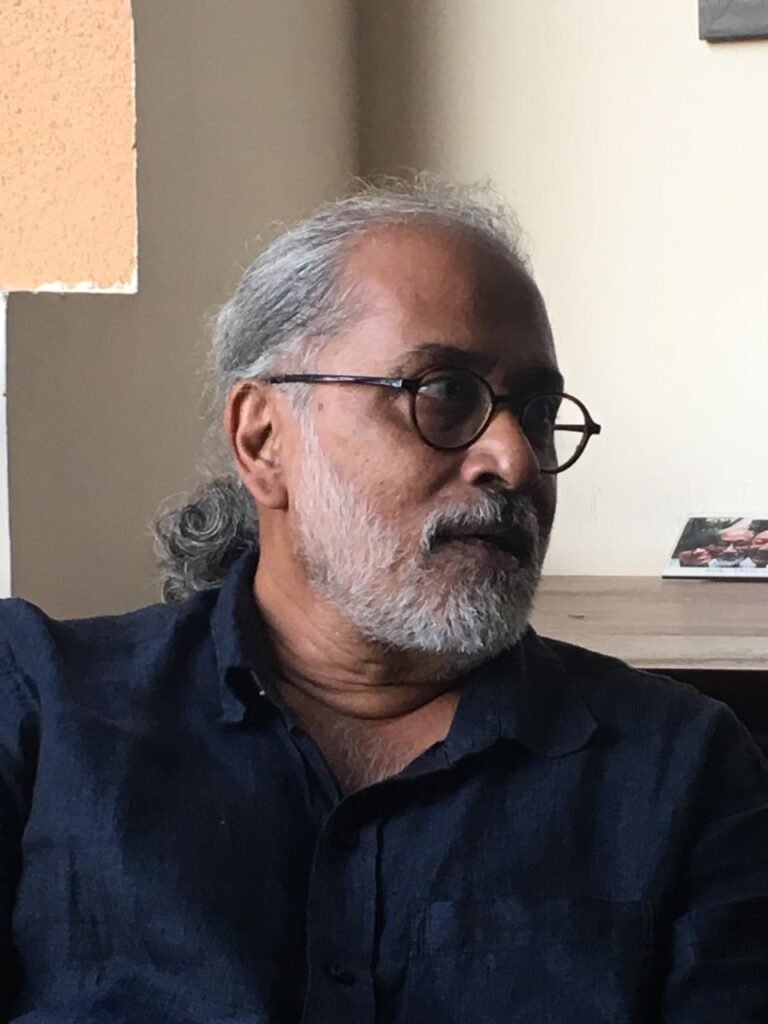
Ashish Rajadhyaksha is a film historian, and an occasional art curator. He is the author of the Encyclopaedia of Indian Cinema (with Paul Willemen, 1994/1999), Indian Cinema from the Time of Celluloid: From Bollywood to the Emergency (2009) and John-Ghatak-Tarkovsky: Citizens, Filmmakers, Hackers (2023). He co-curated the Bombay/Mumbai 1992-2001 section (with Geeta Kapur) of Century City: Art and Culture in the Modern Metropolis at the Tate Modern (2002), the You Don’t Belong festival of film and video in four cities in China (2011) and Memories of Cinema at the IVth Guangzhou Triennial, 2011, and the exhibition Tah-Satah: A Very Deep Surface: Mani Kaul & Ranbir Singh Kaleka: Between Film and Video at the Jawahar Kala Kendra, Jaipur (Jan-Mar 2017).

Dayanita Singh (b. 1961, New Delhi) uses photography to reflect and expand on the ways in which we relate to images. Her recent works, drawn from her extensive photographic oeuvre, are a series of mobile museums that allow her images to be edited, sequenced, archived and displayed. Stemming from Singh’s interest in the archive, the museums present her photographs as interconnected bodies of work that are replete with both poetic and narrative possibilities. Museum of Chance (2013), for instance, may at one moment exist as two immense pillars while at another it could fold out into flat screens, transforming into a single room in which visitors may sit at tables and converse. Recently, the museums have evolved into the singular pillar form, consisting of five cubes that can pack flat, accompanied by a stool. The modular design of Bawa Rocks (2021) allows for the rearrangement of the stackable cubes and the swapping of photographs. The images themselves reflect Singh’s love of the architecture of Geoffrey Bawa (1919–2013): ‘I went to [Bawa’s] Kandalama Hotel and I recognised it. I recognised the aesthetic, knew the light’. Singh has continued to reconceptualise architecture in a new series of Montages, which seamlessly splice together images from diverse spaces to create phantastic yet plausible settings.
Publishing is also a significant part of the artist’s practice: in her books, often published without text, Singh extends her experiments on alternate forms of producing and viewing photographs. She says, ‘the book is at the heart of my work. To me, the exhibition is the catalogue of the works in the book’.
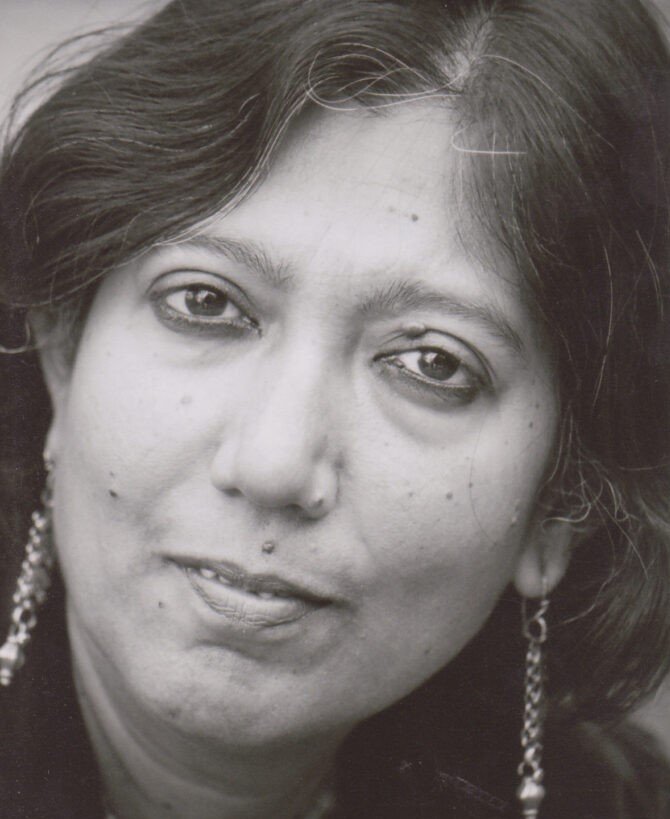
Madhusree Dutta, a filmmaker and curator, specialises in documentary practices, urbanology, interdisciplinary archiving, and public culture. She founded Majlis, a Mumbai-based centre for rights discourse and art initiatives, serving as director from 1998 to 2016. Additionally, she was the artistic director of the Academy of the Arts of the World in Cologne, Germany, from 2018 to 2021. Dutta has curated numerous cultural projects, including Expression, India’s first festival on feminist arts, and Culture@WSF for the World Social Forum. Notable among her curatorial endeavours is Project Cinema City: Research Art and Documentary Practices (2009-2013), a multi-disciplinary project premiered at Berlinale in 2010. Her significant curations for the Academy of the Arts of the World (Akademie der Künste der Welt) include Copy It: only for those who have sinned – stolen or copied books (2019), and Film-Work (2020). Dutta has served on juries for international film festivals such as Berlinale Shorts and IDSFFK. She has authored several books on cinema, including dates.sites: Bombay Mumbai (2012) and Project Cinema City (co-edited) (2014); Fake Hybrid Sites Palimpsest: essays on leakages (2022) and How to Make Female Action Heroes (2023).

Moinak Biswas is Professor of Film Studies at Jadavpur University, Kolkata, where he has taught since the inception of the Department in 1993. He is also the Coordinator of the Media Lab, a centre for experiments in digital forms at the University. He writes on Indian cinema and culture. Among his publications are Apu and After, Revisiting Ray’s Cinema (2005), Chaplin (1997, 2000), and numerous essays in Bengali and English. He edits the Journal of the Moving Image and co-edits the Bengali literary magazine Kolkata 21. He has written and co-directed the award-winning Bengali feature film Sthaniya Sambaad (2010), and has more recently created the video installation Across the Burning Track, commissioned for the 11th Shanghai Biennale, 2016.
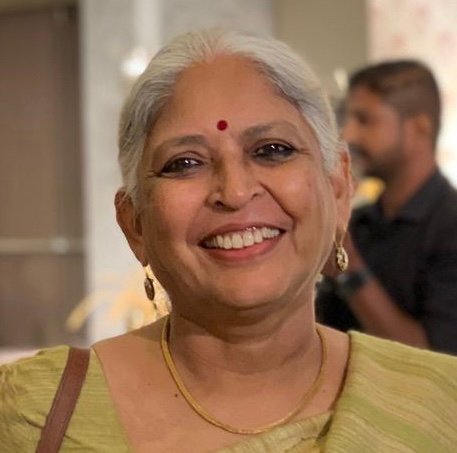
An alumnus of the Film and Television Institute of India, Bina Paul is an award-winning film editor whose works have been presented at numerous international events. She has served as the artistic director of the International Film Festival of Kerala, shaping it into one of India’s most important film events. She is presently the joint president of NETPAC (Network for the Promotion of Asia Pacific Cinema) and is a founding member of the Women in Cinema Collective, Program Head for the Dharamshala International Festival. As a Board Member of the IAWRT, Chapter India, she is the Festival Director of the 19th Asian Women’s Film Festival. Currently Artistic Director of the Cinevesture International Film Festival to be held in Chandigarh.
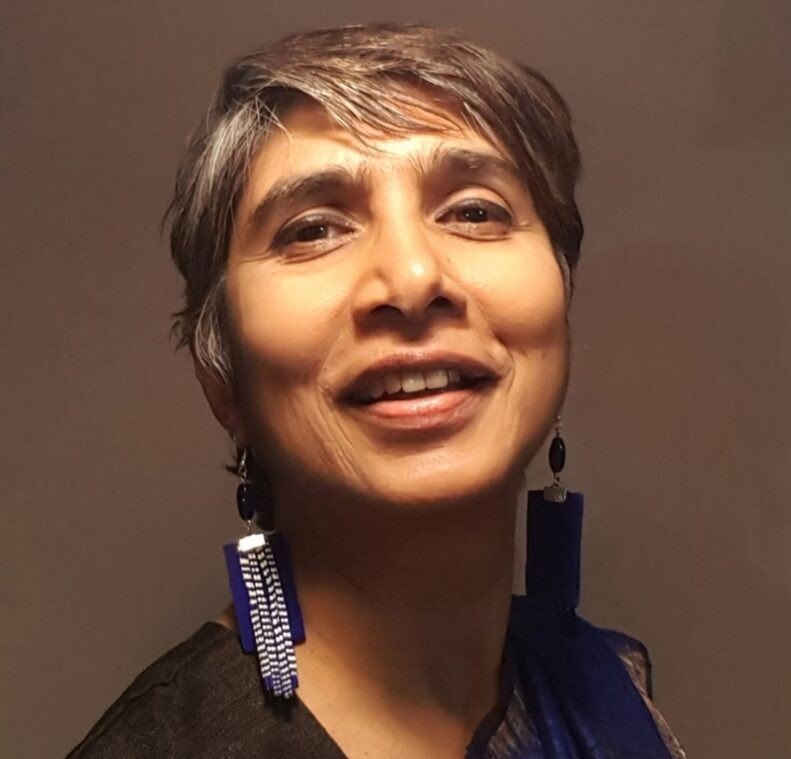
Meenakshi Shedde is an award-winning, independent film curator, critic, journalist and consultant, shaping global perceptions of South Asian cinema for 40 years. She was a Jury Member of the Cannes Film Festival’s Semaine de la Critique 2023 and currently works in Indian and South Asian programming for the Berlin Film Festival, Toronto International Film Festival TIFF, and Jio Mami Mumbai Film Festivals. She was Golden Globe Awards International Voter 2022-23; she has also been on the jury of 25 film festivals, including Cannes, Berlin and Venice. She has been curator/programmer/consultant to British Film Institute, TIFF Cinematheque, Cinematheque Francaise, Busan, Dubai, IFFI-Goa film festivals, Asia Pacific Screen Awards (Australia). As Script Mentor/Curator/Consultant, she has worked with top film festivals/funds/labs worldwide, including Sundance Institute, USA, Venice Film Festival’s Biennale College Cinema, Hubert Bals Fund IFF Rotterdam, Locarno Film Festivals Open Doors.

Nida Ghouse is a writer and curator. In 2024, she is teaching as a guest lecturer at Curatorial Studies, Zurich University of the Arts, and at Sound Studies and Sonic Arts, Berlin University of the Arts. Previously, she was faculty at the Centre for Curatorial Studies at Bard College, New York (2022-23) and visiting lecturer at the Interdisciplinary Doctoral Program in the Humanities at Princeton University (2022).

Patrick F. Campos, a film scholar, critic, and associate professor at the UP Film Institute, studied cinema and literature at the University of the Philippines and the University of Westminster in London. He authored The End of National Cinema, edits Pelikula: A Journal of Philippine Cinema and Moving Image, and programmes the Tingin Southeast Asian Film Festival. Campos co-organizes the Association for Southeast Asian Cinemas Conference. He is involved in various film festivals, including Singapore International Film Festival, Kolkata International Film Festival, Guanajuato International Film Festival, QCinema International Film Festival, Jogja Asian Film Festival, Madani International Film Festival, Cinemalaya Independent Film Festival, Cinema One Originals, Image Forum Tokyo, Minikino Bali, Asian Film Archive Singapore, Cultural Center of the Philippines, Museum of Contemporary Art and Design Manila, SeaShorts Kuala Lumpur, Cinema Rehiyon, Gawad Urian, among others.
Campos’s work challenges notions of ‘national’ and ‘regional’ cinemas, in the Philippines and Asia. He has curated for institutions like the Cultural Center of the Philippines and participated in events like Cinema Rehiyon and Gawad Urian, contributing significantly to the discourse on Asian cinema. He is a member of NETPAC and FIPRESCI.
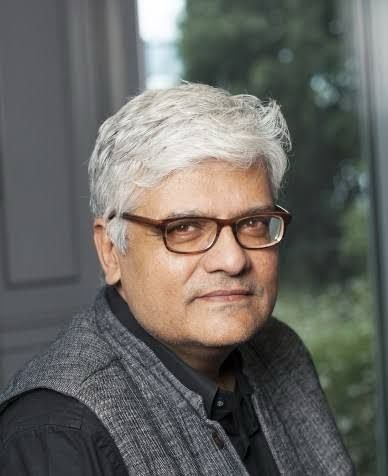
Ravi Vasudevan specializes in film and media history. He co-directs Sarai, the CSDS media and urban studies program, with Ravi Sundaram. Vasudevan serves as guest faculty in Film Studies at Jawaharlal Nehru University, Jadavpur University, and Ambedkar University Delhi. Additionally, he acts as editorial advisor to several film and media studies journals, including Screen, Cinema and Cie, Reframe, and the Historical Journal of Film, Radio, and Television. He has organised numerous film screenings, lecture series, and conferences such as The Many Lives of Indian Cinema, 1913-2013 and Beyond: Disciplines, Histories, Technologies, Futures (January 2014), among others with Ravi Sundaram and Raqs Media Collective. His publications include Making Meaning in Indian Cinema (2000) and The Melodramatic Public: Film Form and Spectatorship in Indian Cinema (2010, 2016). He co-edits Bioscope: South Asian Screen Studies – a significant collective endeavour amongst film-studies folk in India, USA and Europe, and is one of the only journals of its kind, which addresses the essential questions surrounding archiving and field-work. He has co-edited works such as, Sarai Reader 02: The Cities of Everyday Life (2002), and Sarai Reader 03: Media/Crisis (2003), The Marg special issue, Documentary Now, Marg (guest editor, 2018). Presently, his research focuses on non-fiction film infrastructures, post-cinema media artifacts, and media histories related to advertising, publicity, and public relations.

Sanil V. is Professor of philosophy at the Department of Humanities and Social Sciences, Indian Institute of Technology, New Delhi, India. He obtained his bachelor’s degree in Mechanical Engineering and worked as a scientist in Defense Research and Development Organisation. In 1995, he obtained his PhD in Philosophy from Indian Institute of Technology, Kanpur. His recent publications include Kolayude Koreography (Choreography of Murder), Public Sphere from Outside the West (ed. Bloomsbury, London), Time Passing: Kant Goes to Movies, Mathematical Idea and Cinematic Image, Special Effects and Reality, The Map of Objects (On Sergey Parajanov) He teaches courses on Art and Technology, Philosophical perspectives on Fascism, and Philosophy and Film.
He was the Watumall Distinguished Professor at Dept of Philosophy University of Hawaii, USA, Charles Wallace Fellow at the Department of Philosophy, University of Liverpool, U.K and Directeur d’études Associés, at Maison des sciences de l’homme Paris, Research Excellence Fellow, CEU Budapest, Scholar in Residence, Kerala Council for Historical Research. He also writes and publishes in Malayalam.